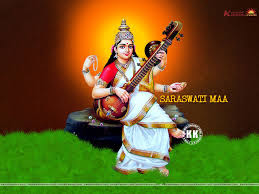The Realisation of the Absolute : 6.
Truth and Its Quest :
The Upanishads do not declare that Truth is a state of dynamic change and action, all which marks limitation and imperfection, but one of perennial calm, limitless joy and permanent satisfaction. Change is othering, altering, movement, which is activity, an effort exercised to achieve an unachieved end, which is the characteristic of an unsatisfied imperfect being. This cannot be the Nature of Truth, for Truth is ever-enduring and has no necessity to change itself.
Change is the quality of untruth and the Upanishads assert that Reality is Self-satisfied, Self-existent, Non-dual, Tranquil and utterly Perfect. An appeal to the inwardness of consciousness expanded into limitlessness is the burden of the song of the Upanishads. In this respect the Upanishads are extremely mystic, if mysticism does not carry with it an idea of irrationalism or a madness of spirit. The transcendental mysticism of the Upanishads is not the effect of an emotional outburst, but a calm transcendence of intellect and reason through a development into the integral consciousness.
The Truth, "knowing which everything becomes known" is the subject of enquiry and the object of quest in the Upanishads. The Seers dived into the very depth of Existence and tasted the nature of the Limitless Life. They entered into the Root of the universe and the branches could easily realise their inner being through an investigation into the essential workings of the Great Root of Life. When the root is watered, the branches are automatically watered; when gold is known, all the ornaments also are known; when Truth is realised, everything is realised; for, Truth is One. Whatever system of philosophy may be derived from the Upanishads, the obvious truth goes without saying that they propound a theory that holds Reality to be indivisible, objectless and transcendent.
They assert that belief in diversity is an ignorance of consciousness, and Truth is essentially a boundless Unity. They lead us from the faulty faith in the objective reality of the universe to an internal search of the veritable Self existing as the finest essence of our being. And what is even more striking is their untiring insistence on attaining Self-Perfection. To their immortal honour, they grasped the eternal fact that the knowledge of the Self is the supreme end of life, its only meaning and purpose ever, and that beings exist but for that grand Attainment of Light, Freedom and Immortality! Blessed is he, and he has truly lived a purposeful life, who attains to this height of undying joy in this very life; and he is a great loser and has lived his life in vain, who has failed to realise the Truth here (vide Kena Upanishad., II. 5).
The Upanishads affirm in several ways that there is no meaning in taking the phenomenal diversity as a permanent reality, and that Truth is Infinity. The common impulse to express, unfold and realise one's Self is present in all beings in different degrees or intensity. The whole process of conscious exertion to realise Truth lies in the manifesting of this deepest impulse in man and a flowing with it to expand oneself into the Infinite. As the background of every struggle in life there is this urge to get oneself established in the changeless Consciousness. Even when one struggles blindly in one's attachment to personal life for acquiring external gains, one is indeed moved, though unconsciously and wrongly, by this urge to expand oneself to Completeness.
Swami Krishnananda
To be continued





Comments